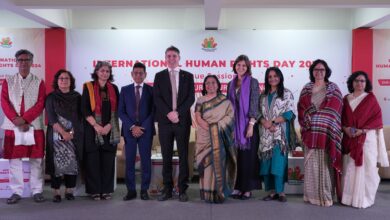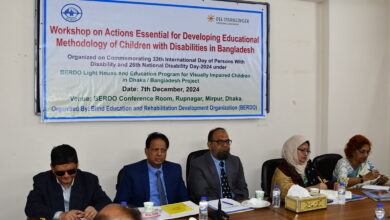Bangladesh Constitution Day today

Today is the Bangladesh Constitution Day as the Constitution of the People’s Republic of Bangladesh was adopted by the Constituent Assembly of Bangladesh on November 4, 1972 and came into effect on December 16 in the same year.
The nation will observe Constitution Day with 17 amendments to the constitution having already been effected.
Four of them have been declared illegal by the Supreme Court and the government has sought revision of a Supreme Court verdict that has declared the 16th amendment illegal.
The day this year bears special significance as the government on December 31, 2021 officially declared November 4 as National Constitution Day to observe the day nationally.
The Constituent Assembly, a forum of people’s representatives, enacted the constitution on November 4, 1972, presenting the People’s Republic of Bangladesh with a written set of political principles in less than a year since its victory in the 1971 war for national independence.
The constitution came into effect on Victory Day on December 16, 1972.
The country’s 50-year journey of constitutional rule was interrupted several times by martial law and marked by a series of amendments to the constitution either to ratify military rules or to tailor it to major policy changes of successive governments.
The constitution has so far seen 17 amendments with the first one done just seven months inside its enforcement.
Fifth, seventh, eighth, 13th and 16th amendments have been declared illegal by the Supreme Court.
The July 15, 1973 first amendment enabled the government to make any law to try perpetrators of war crimes.
The second amendment was made on September 22, 1973 making provisions for the proclamation of a state of emergency.
The constitution was amended for the third time on November 28, 1974 endorsing the Bangladesh-India boundary treaty.
The fourth amendment, regarded as one of the most controversial in the country’s constitutional history, was made on January 25, 1975 making provisions for one-party (BKSAL) rule and bringing the judiciary, including the Supreme Court, under the control of the president.
The country’s founding president Sheikh Mujibur Rahman had been assassinated before the fifth amendment was made on April 6, 1979, ratifying the martial law period between 1975 and 1979, inserting ‘Bismillahir Rahmanir Rahim’ before the preamble to the constitution and abolishing ‘secularism,’ one of the basic principles of the 1972 constitution.
The sixth amendment, made on July 10, 1981 after the assassination of the president Ziaur Rahman, also the Bangladesh Nationalist Party founder, to enable the then vice-president Justice Abdus Sattar to contest the presidential polls.
The seventh amendment, made on November 11, 1986, ratified the martial law of HM Ershad.
The eighth amendment on June 9, 1988 declared ‘Islam’ the state religion of Bangladesh. It also made provisions for decentralisation of the High Court by setting up its benches in major cities.
Provisions for elections to the offices of the president and the vice-president were made by the ninth amendment on July 11, 1989, while the 10th on June 23, 1990 gave a 10-year extension to the provision for reserved seats for women in the parliament.
The 11th amendment on August 10, 1991 made provisions for the return of Justice Shahabuddin Ahmed to the office of the chief Justice after discharging duties as the acting president of the first interim government, which was formed in December 1990 after the fall of Ershad.
The country returned to the parliamentary form of government through the 12th amendment on September 18, 1991, which set a rare example of consensus between the treasury and opposition benches.
The 13th amendment was made on March 28, 1996 to introduce the system of non-party caretaker government during national elections.
The 14th amendment was made in 2004 to make provisions for electing women to the reserved seat in Jatiya Sangsad based on proportional representation of the political parties in the parliament and extending the retirement age of the Supreme Court judges.
The 15th amendment was made on July 3, 2011 abolishing the system of non-party caretaker during the national elections which was declared unconstitutional by the Supreme Court.
The 16th amendment was made on September 17, 2014 restoring parliament’s power to remove Supreme Court judges for incapacity and misbehaviour.
The 17th amendment July 2018 gave a 25-yer extension to the provision for reserved seats for women in the parliament.
Different institutions and organisations have taken elaborate programmes to mark the day.
The Supreme Court will hold a discussion today to celebrate the 50 years of the adoption of the constitution and observe Constitution Day.
Speaker Shirin Sharmin Choudhury is scheduled to address the discussion speak as chief guest while law minister Anisul Huq will present as the special guest.
Chief justice Hasan Foez Siddique will preside over the discussion at the Supreme Court Judges’ Complex where M Amirul Islam, one of the framers of the constitution, will also speak.





